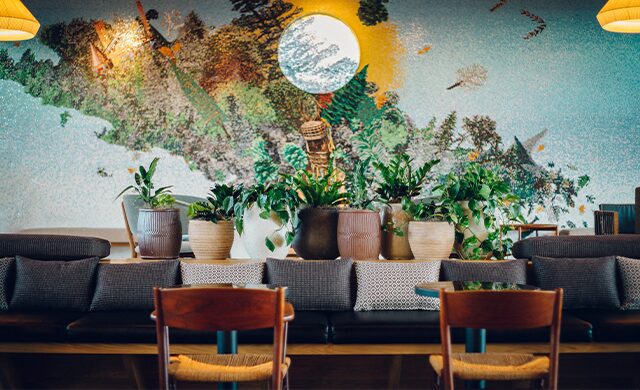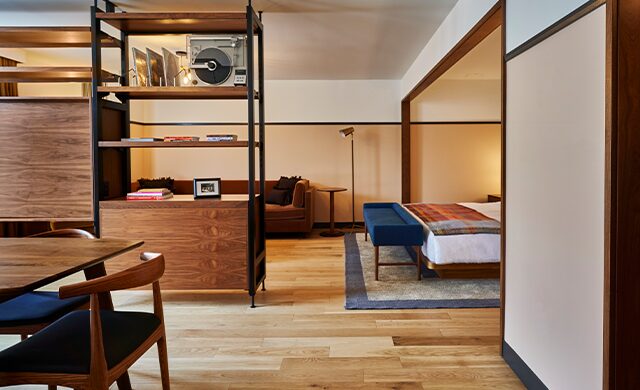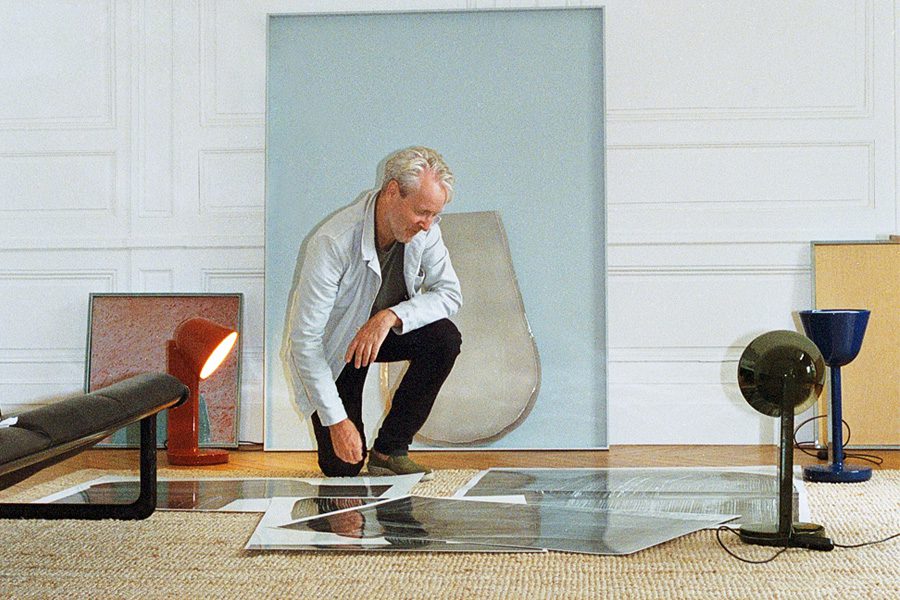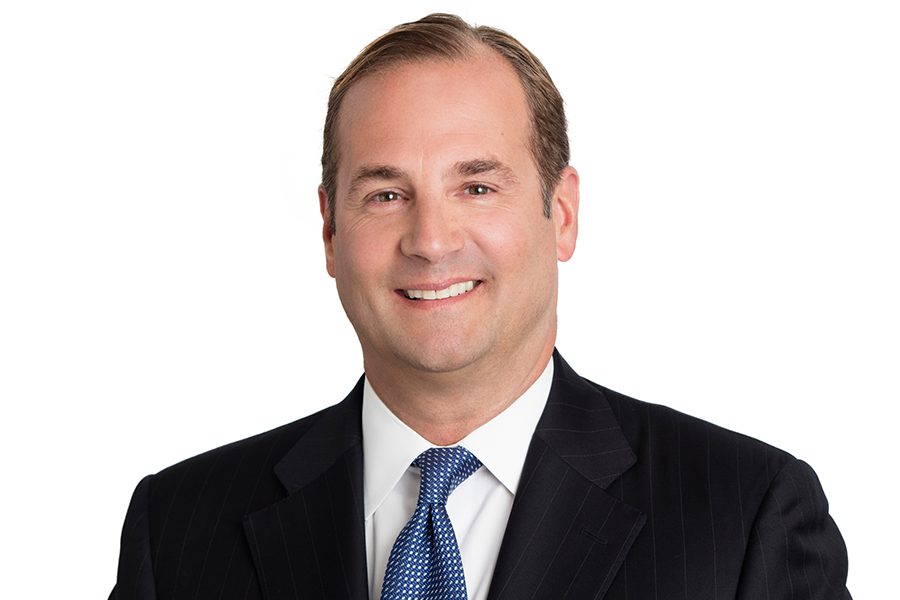A lush landscape and notable collection of bronze works woo visitors to Brookgreen Gardens. But marring this outdoor sculpture paradise in South Carolina’s greater Myrtle Beach area is a horrific past. Situated on four former rice plantations, landowner Joshua John Ward was the largest slaveholder in the U.S. during his lifetime. Artist and curator Sheldon Scott, director of culture at Eaton DC, is among those whose ancestors were enslaved on this land—his grandmother is buried onsite—and continued tending to the rice fields post-emancipation.
Exploring the warped relationship between Black labor and white leisure is personal for Scott, who was reared in nearby Pawleys Island. His oeuvre is informed “by race, hyper-capitalism, gender expression—how they work together to build oppressive systems and how you can dismantle them,” he says.
In fact, as a finalist in the Smithsonian’s 2019 Outwin Boochever Portrait Competition at the National Portrait Gallery in Washington, DC, an edition that included performance art for the first time, Scott unveiled Portrait, number 1 man (day clean ta sun down), a tribute to his forebearers in which he kneeled on burlap and hulled rice, from sunup to sundown, for six days straight.

A living plant wall punctuates the Parts and Labor-designed yoga room at Eaton Wellness in DC
After studying psychology at Francis Marion University in Florence, South Carolina, Scott launched his career with the Boys & Girls Clubs of America, yet felt compelled to explore his life more deeply. “I wanted to understand my position—largely framed by growing up as a Black, gay, poor child in the rural South and the limitations that are assigned to those conditions in a global setting,” he recalls. “Having to shrink so much of myself, the entirety of the world opened up. My experiences became rocket fuel.”
This intense desire spawned a move to DC in 2000, where Scott began storytelling, tapping into the rich oral traditions of the Gullah Geechee people—descendants of Africans who were enslaved on the rice, indigo, and cotton plantations of the lower Atlantic coast—that were integral to his Lowcountry upbringing. Having never been to an art museum until he moved to DC in his mid-20s, Scott only had an abstract idea of what it meant to be an artist. All the more remarkable that he’s come so far as a flourishing performance artist who also delves into sculpture, photography, and ephemera.

A mosaic mural enlivens the Gachot Studios-designed Wild Days rooftop bar at Eaton DC
He was also an ideal fit for Katherine Lo’s Eaton Workshop, a hotel brand anchored in activism and inclusivity. Initially skeptical, once Scott saw that Lo was truly committed to uplifting marginalized voices and championing social change, he was on board, joining the hotel-cum-cultural center in 2017 as creative director, prior to its opening a year later. His role is that of a curator of programming and art, acting as a concierge to connect guests to Eaton DC’s thriving, culturally charged community.
Scott is especially proud that Eaton “surrendered to the community so quickly,” he says. Whether guests drink cocktails in the company of a mural recasting Alice in Wonderland as Ruby Bridges—one of the first Black children to desegregate an all-white elementary school—or partake in a discussion on race and fashion, they are engaged and open-minded. Eaton DC, Scott says, has become “an extension of my creative practice.”

Walnut and black metal millwork in Eaton DC guestrooms by Gachot Studios
Photos by Kirth Bobb, Adrian Gaut, Jennifer Hughes, and James Jackson
This article originally appeared in HD’s July 2020 issue.


